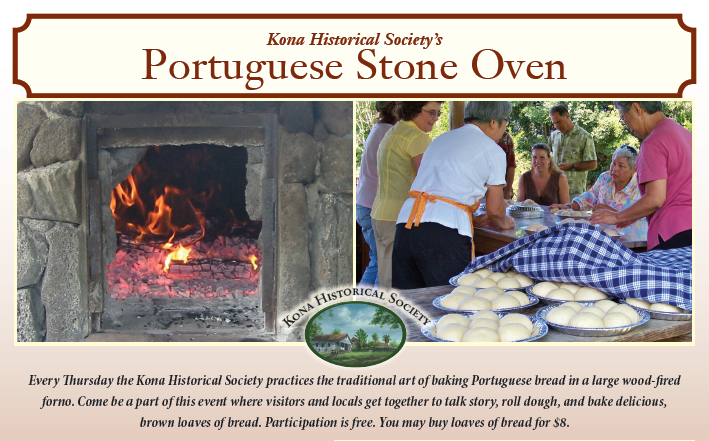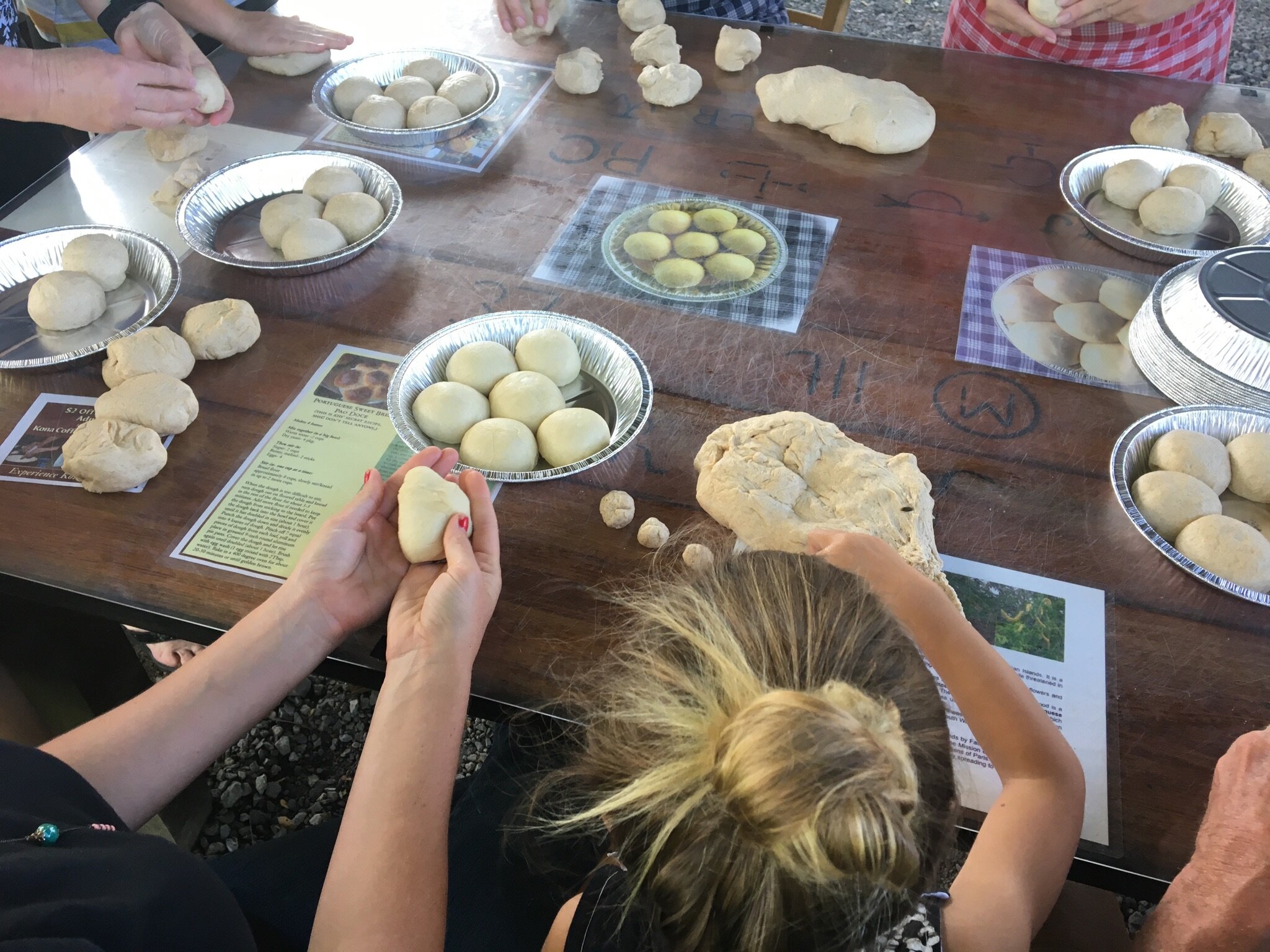-
UPDATE 2/27/2025: The bread oven program is temporarily closed while we are in the process of hiring a new baker. Those interested in the position may email programs@konahistorical.org
Make it at home!
Our bread is world famous. For our friends who are unable to make it in person to purchase, you can make your own version at home! Don’t forget to tag us in your creations on Facebook: @konahistoricalsociety. Happy baking!
Kona Historical Society practices the traditional art of baking Portuguese bread in a large wood-fired stone oven, or forno, located in the Kalukalu Pasture below the Society’s headquarters, H.N. Greenwell Store Museum, and Native Forest Exhibit.
Every Thursday beginning at 10 a.m., the public is invited to participate in rolling dough with our team of dedicated staff and volunteers. Stay awhile as the bread bakes to talk story about the history of the Portuguese in Kona.
Our stone oven is a communal oven and can hold more than 30 loaves of bread at a time. An oven of this size needs at least 4 hours of heating time, requiring a staff member to light the fire inside it at 6 a.m. While the oven is heating, the dough is mixed, allowed to rise, rolled into seven balls (a lucky number for the Portuguese), and placed into pans. The coals from the fire are removed from the oven before the bread is put in so that it is the stored heat in the stones that bakes the bread.
Around 12:30 p.m. is when the first batch of beautiful brown bread comes out of the oven. Bread sales start around 1:00 p.m. under the green tent in our parking lot. Loaves are sold for $10 each on a first-come, first-served basis. Both cash and card payments are accepted. At this time, we cannot accept checks for bread sales. Bread will not be sold directly at the oven and cannot be reserved. Look for the sign on the makai (toward the ocean) side of the road.
A Brief History of the Portuguese in Hawaii
The Portuguese, who made their first arrivals in Hawai`i in 1878, have had an important impact on the development of Kona. Initially, Portuguese from the Azores and Madeira came here to work the sugar cane plantations, seeking a better life. Always industrious, they soon became landowners and with that came ranching. They were a major factor in the development of a flourishing dairy industry, using their skills as stone masons to create miles of stone cattle pens to hold and protect the livestock, and stone ovens for cooking and baking bread. Their social and religious customs added greatly to the rich diversity of the Hawai`i population of the 19th century.
The Portuguese who came to Kona were predominately dairy farmers. They brought with them the skills learned from generations of working with animals to produce milk and butter. Their skills as builders of stone walls were crucial in the process of taming the wild cattle to provide beef, hides and milk for these dairies. Fornos, or Portuguese ovens, were once found throughout the Hawaiian islands wherever the Portuguese congregated. Some fornos were communal and were utilized by entire communities, others belonged to a single family. Each week these wood burning ovens would be fired up to bake the family’s supply of bread, the staple starch, and also some extra loaves for bartering or selling. The Portuguese brought with them expertise in growing and harvesting grapes for wine making and creating the familiar Portuguese sausage and flavorful smoked sausages such as linguica and chourico. They are, however, most known for introducing the ukulele and slack key guitar to Hawai`i.
Another defining characteristic of the Portuguese is a strong traditional family structure. From the beginning of the immigration period which lasted until 1913, Portuguese who were recruited by the plantations insisted that their families accompany them. Religion and the church played an important role in the upbringing of the children; at one of the dairies high in the mountains above Kona, Portuguese workers constructed a small chapel, so that the priest could make monthly visits to the family, thereby maintaining their contact with religion.
You ‘knead’ to know this!
After being shut down for almost two years during the height of the pandemic, the Portuguese Stone Oven Baking returned in January 2022 thanks to funding by the #SHARP grant from the Hawaii Council for Humanities, through the support from the National Endowment for the Humanities.





